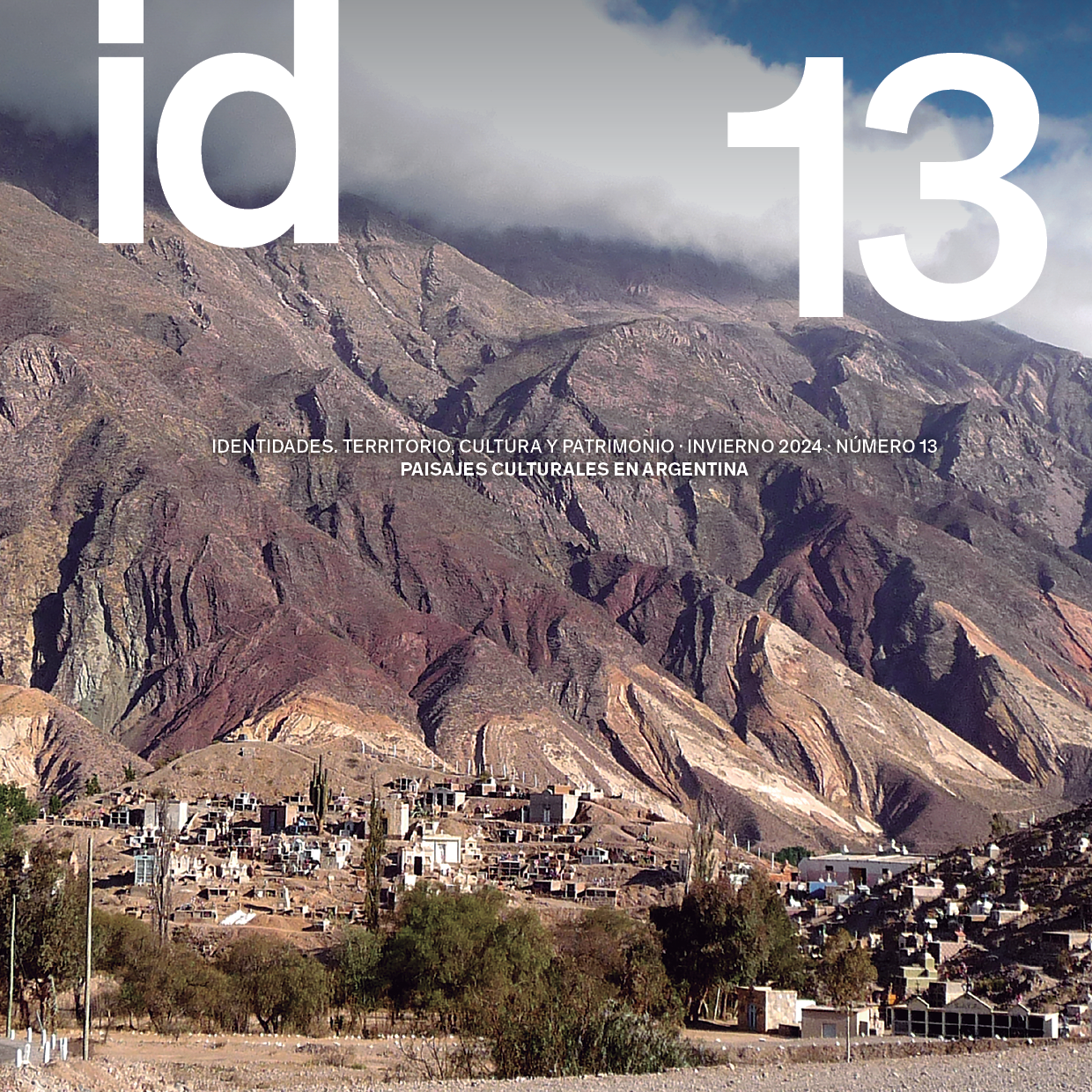Call for papers: identidades 14
Paisajes post-industriales
Read more about Call for papers: identidades 14The journal "Identidades: Territorio, Cultura, Patrimonio" was born with the intention of becoming a vehicle for the dissemination of studies and intervention initiatives on cultural landscapes, which play an increasingly important role in territorial development. They are communicative spaces that store and transmit information. In the same way that cities have gained prominence in the information age, these spaces assume an increasingly relevant role as communicative places, places where stories and messages are linked to spaces and forms.
ISSN: 1886-6840
Paisajes post-industriales
Read More Read more about Call for papers: identidades 14
La revista Identidades, iniciativa del Laboratorio
Internacional de Paisajes Culturales, quiere ser
un vehículo de difusión de estudios e iniciativas
de intervención en estos espacios comunicativos que
atesoran y transmiten información y juegan un cometido
cada vez más importante en el desarrollo territorial.
Quiere dar cabida a todo tipo de reflexiones sobre
esta temática, así como a las investigaciones teóricas
y aplicadas sobre el proyecto urbanístico basados
en los recursos culturales.
International Laboratory of Cultural Landscapes
In September 2001, several professors and researchers from the Polytechnic University of Catalonia and the Massachusetts Institute of Technology founded an International Laboratory for the investigation and promotion of cultural landscapes. This Laboratory was endorsed by various previous collaboration projects in the field of research and development and obtained the support of the Department of Universities, Research and Information Society of the Generalitat of Catalonia, of some institutions (COAC, AADIPA, MNATEC) , professionals and scholars of cultural landscapes. In turn, the Barcelona Provincial Council entrusted us with various studies on the revaluation of heritage resources along the main river courses of the province of Barcelona.
The Laboratory intends to call attention to urban planning based on cultural resources. This was a relatively novel approach in Europe and the United States, which has not received the necessary attention to date. The members of both Universities had developed during the previous two years a first analysis of various experiences around the world, which resulted in the publication of a book, where for the first time numerous cultural landscapes and heritage parks were described and analyzed (Projecting the Eje del Llobregat, Cultural Landscape and Regional Development. Barcelona, 2001). This work was at the same time an attempt to deduce some lessons from this new approach to planning and criteria for its correct application. Initiatives based on cultural resources and heritage in its broadest sense have been proliferating in recent years. Many of these projects involve the adaptation of old industrial and agricultural areas to the new requirements and activities of the 21st century (new technologies, education, communications, leisure and tourism, information, among others).
The International Laboratory tries to interpret, encourage and disseminate these experiences, with the aim of extending attention to cultural heritage as a fundamental factor in the construction of the territory and the city. A first step would be to increase the quality and capacity to influence urban design and planning based on cultural resources. A more ambitious objective would be to encourage, from there, the economic development of former productive spaces today in decline; improve the quality of life in cities and territories; preserve their distinctive physical and cultural features; and encourage more responsive and effective development models in combining tradition with current requirements.
Main goals
The Laboratory's fundamental objectives are:
- Promote theoretical and applied research on urban and territorial design and planning based on cultural resources, collaborating with the competent administrations to adapt instruments and methodologies to achieve this.
- Contribute to raising awareness so that any intervention is respectful of the landscape where it is inserted.
- Attract the attention of designers and researchers, institutions and companies to these initiatives.
- Promote international relations between experts and scholars and contribute to disseminating the experiences of greatest interest in this field.
- Hold scientific meetings and publish their results, as well as that of the research carried out.
- Carry out specific training activities (doctoral, master's, specialization courses, workshops, updating seminars ...) to prepare and update the professionals involved.
- Establish a documentation center on cultural landscapes.
- Converge professionals, ideas and projects that participate in this new attitude towards the practice of urban and territorial planning.
- Give technical support to initiatives based on the valuation of cultural resources and promote the revaluation of depressed territories where cultural resources can become an important factor in development. Likewise, promote the preservation of spaces where urbanization dynamics endanger relevant cultural references
GRU · Grup de Recerca en Urbanisme / Research Group in Urbanism
GRU was created in 1997 to articulate the research of a large part of the DUOT faculty who deal with the theory and methodology of the urban and territorial project in its different facets, the study of the urban and territorial reality of various cities and territories, as well as its urban history.

